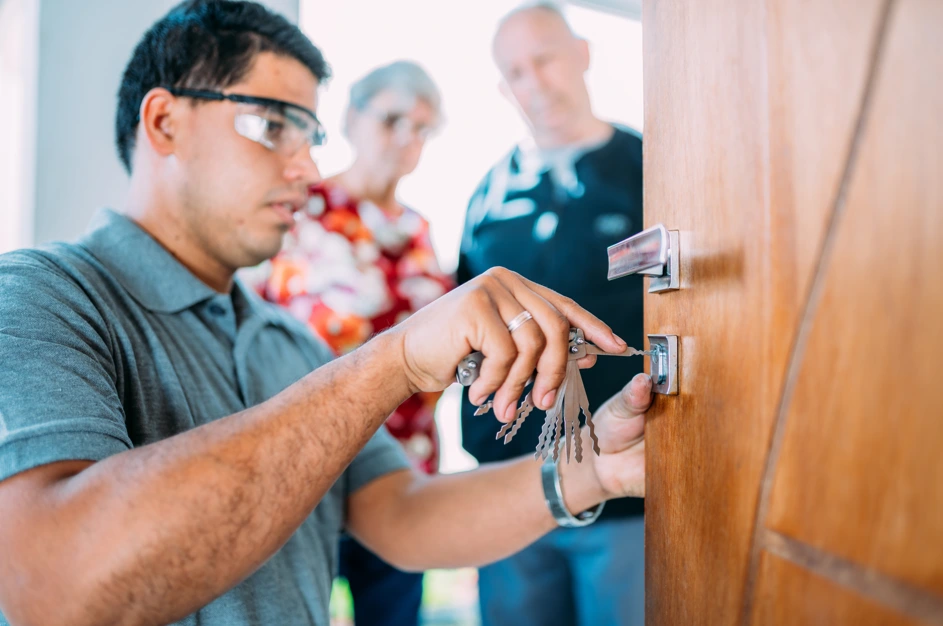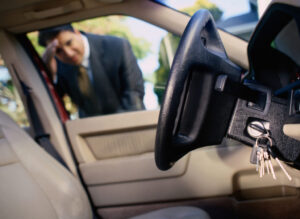Home security is a top priority for homeowners across Alabaster and the surrounding areas. While many people think about installing new locks or alarm systems, one of the most effective yet often overlooked ways to enhance home security is rekeying. Rekeying is a cost-effective process that changes a lock’s internal mechanism so that old keys no longer work, giving homeowners complete control over who can access their property.
In this guide, Your Alabaster Locksmith, a professional residential locksmith, explains the benefits of rekeying your home, when it’s needed, and how it enhances safety and peace of mind.
What Is Rekeying and How Does It Work?
Rekeying is a locksmith procedure that modifies the pins and tumblers inside a lock cylinder, making previous keys unusable. Unlike replacing a lock, rekeying uses the existing hardware, which saves time and money while maintaining the lock’s structural integrity.
The Difference Between Rekeying and Replacing Locks
Replacing a lock involves removing the old lock and installing a brand-new one, which can be expensive and time-consuming. Rekeying, on the other hand, changes the internal configuration of the lock so that a new key is required to operate it. The exterior hardware remains intact, offering a seamless look while improving security.
This makes rekeying an ideal solution for homeowners looking for quick and affordable security upgrades without the hassle of full lock replacements.
Why Rekeying Improves Home Security?
Limits Access to Your Home
Rekeying allows homeowners to control who has keys to their property. Over time, keys can be distributed to friends, family, contractors, or previous tenants. Without realizing it, you may be giving unauthorized individuals access to your home. Rekeying ensures that only trusted individuals can enter.
Protects Against Lost or Stolen Keys
Keys can easily get lost or stolen, creating a serious security vulnerability. When you rekey your locks, old keys are immediately invalidated, preventing potential intruders from accessing your home. This is particularly important if keys have been misplaced or stolen from outside the home.
Prevents Unauthorized Duplicates
Even if you never physically lose a key, there is always a risk that someone made a duplicate without your knowledge. Rekeying removes that risk, as only the newly cut keys will operate the locks.
Common Scenarios That Require Rekeying
Several situations make rekeying a practical and necessary step for home security. Understanding these scenarios can help homeowners proactively protect their property.
Moving Into a New Home
When moving into a new house, it is impossible to know how many people possess copies of the existing keys. Rekeying ensures that you are the only person with access, providing peace of mind from day one.
After Losing Your Keys
Lost keys create a vulnerability that cannot be ignored. Rekeying your home after losing keys guarantees that any lost or misplaced key cannot be used to enter your property.
After a Break-In or Attempted Break-In
If your home has been targeted for burglary, rekeying the locks immediately after the incident helps restore security. It eliminates the risk that someone has a key that could give them future access.
Following Tenants or Roommate Changes
For rental properties or shared housing situations, changing occupants without rekeying the locks can leave the property exposed. Rekeying is an affordable way to maintain control over who can enter the home.
How Rekeying Saves Money Compared to Lock Replacement
Rekeying is generally less expensive than replacing locks because it uses the existing hardware. Lock replacement requires purchasing new locksets, removing old locks, and installing new ones, which can quickly add up. Rekeying requires minimal materials and is faster to perform, allowing homeowners to improve security at a fraction of the cost.
Additionally, rekeying reduces labor fees since the process is straightforward for a professional locksmith and does not require extensive installation work.
Step-by-Step Rekeying Process
Understanding how rekeying works can help homeowners feel more confident in the process and its benefits.
Assessment of Existing Locks
A professional locksmith from Your Alabaster Locksmith first evaluates the current locks to determine compatibility for rekeying. Some older or damaged locks may need replacement instead of rekeying.
Disassembling the Lock Cylinder
The locksmith removes the lock cylinder from the door, carefully disassembling it to access the internal pins and springs.
Replacing or Reconfiguring Pins
The internal pins are replaced or rearranged to correspond to a new key. This ensures that previous keys no longer function while maintaining the lock’s integrity.
Testing the New Keys
After reassembly, the locksmith tests the lock with the new key to ensure smooth operation. Multiple locks in the home can be keyed alike, allowing one key to open all doors if desired.
Installation and Final Check
Finally, the lock cylinder is reinstalled, and a thorough test is performed to guarantee that each lock operates correctly with the new keys. This step ensures maximum security and functionality.
Rekeying vs. Master Keying: Understanding the Options
Rekeying for Individual Access
Rekeying typically provides unique keys for individual locks, ensuring that access is limited to specific doors. This is ideal for single-family homes where control over each entry point is essential.
Master Keying for Multiple Access Levels
Some homeowners may benefit from master key systems, where one key opens multiple locks while other keys are restricted to specific doors. This system is common for larger homes, rental properties, or shared spaces, offering convenience without sacrificing security.
Benefits of Rekeying for Homeowners
Rekeying offers numerous advantages that go beyond simple access control.
Enhanced Security
By eliminating unauthorized keys and ensuring that only trusted individuals have access, rekeying significantly improves overall home security.
Cost-Effectiveness
Rekeying uses existing hardware, making it less expensive than replacing locks while achieving the same level of security improvement.
Convenience
Homeowners can consolidate multiple keys into a single key system, making it easier to manage access. This also reduces the chances of losing multiple keys or forgetting which key belongs to which door.
Peace of Mind
Knowing that your locks are secure and that old keys no longer work provides mental comfort, especially in high-traffic homes or areas where security is a concern.
Recommended: What to do If Your Key Breaks in the Lock?
When to Consider Rekeying Your Home?
Certain times and events in a homeowner’s life make rekeying particularly relevant.
- After moving into a new property
- Following the loss or theft of keys
- When ending a lease or changing tenants
- After break-ins or security threats
- When giving keys to contractors, cleaners, or service personnel
These situations make rekeying a proactive step that protects both your home and your family.
Professional Rekeying vs. DIY Attempts
While some homeowners attempt DIY rekeying using online kits, professional locksmiths offer far superior security and reliability. DIY rekeying may lead to:
- Misaligned pins are causing lock failure
- Damaged locks that require replacement
- Ineffective security due to improper installation
Professional locksmiths, like those at Your Alabaster Locksmith, have the expertise, tools, and knowledge to ensure that rekeyed locks function correctly and securely.
Signs You May Need Rekeying Services
Homeowners may not immediately recognize when their locks need rekeying. Some common indicators include:
- Multiple copies of keys floating among friends, family, or past tenants
- Lost or stolen keys
- Recent home renovations with outside contractors
- Suspicious activity in the neighborhood
Addressing these signs proactively can prevent costly security breaches.
Enhancing Security With Rekeying and Additional Measures
Rekeying works best when combined with other home security measures. Consider the following enhancements:
- Installing deadbolts or high-security locks alongside rekeyed locks
- Upgrading doors and frames to reinforced materials
- Adding smart locks with controlled access for family members
- Using security cameras and monitoring systems
Together, these measures create a layered defense that significantly reduces the risk of unauthorized entry.
Cost Considerations for Rekeying
The cost of rekeying depends on the number of locks, type of lock, and complexity of the key system. On average, rekeying is more affordable than replacement, especially for multiple doors. Professional locksmiths also provide guarantees for their work, ensuring long-term reliability.
How Your Alabaster Locksmith Can Help?
At Your Alabaster Locksmith, we specialize in home security solutions, including rekeying services tailored to the needs of Alabaster homeowners. Our professional locksmiths provide:
- Quick and efficient rekeying of all types of locks
- Master key systems for convenient access control
- Emergency rekeying services for lost or stolen keys
- Expert advice on enhancing home security
With years of experience and a commitment to customer safety, Your Alabaster Locksmith ensures your home is secure and accessible only to those you trust.
Conclusion
Rekeying your home is a simple, cost-effective, and highly effective way to improve security. By controlling access, preventing unauthorized duplication, and addressing potential risks, homeowners can protect their property and loved ones. Whether you have recently moved, experienced a lost key, or simply want to improve overall security, rekeying provides peace of mind and long-term protection.
For residents of Alabaster, contacting Your Alabaster Locksmith for professional rekeying services is the smartest step toward ensuring your home remains safe, secure, and accessible only to those you choose.






